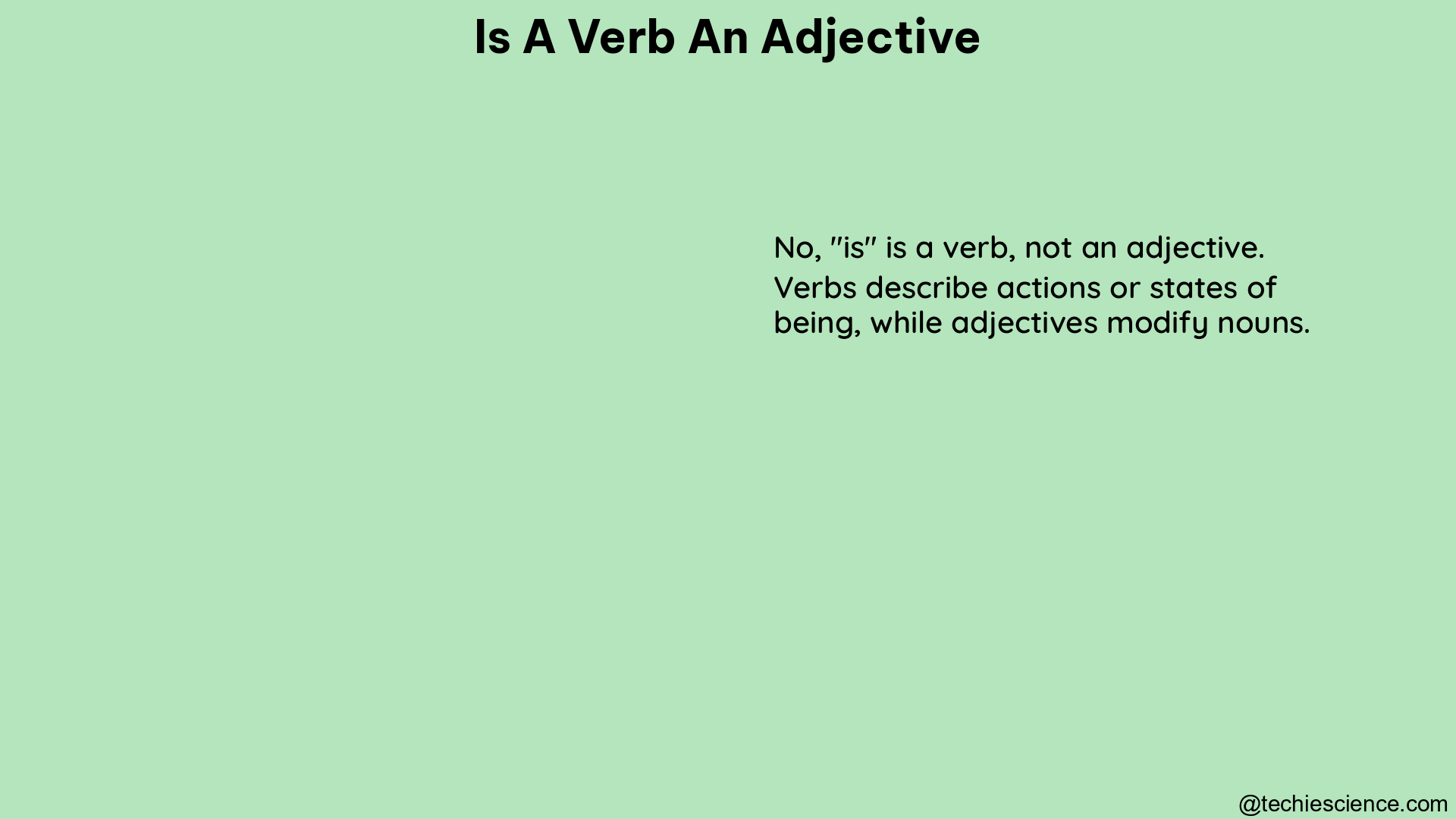Verbs and adjectives are two distinct parts of speech in the English language, serving different functions and playing distinct roles in forming sentences. While they may share some similarities, it is crucial to understand the key differences between these two grammatical elements to effectively communicate and write with precision.
Function
Verbs
Verbs are the powerhouses of a sentence, expressing actions, events, or states of being. They describe what the subject is doing or what is happening in the sentence. Verbs can be transitive, requiring an object to complete the action, or intransitive, not requiring an object. They can also have different tenses, such as past, present, and future, to convey the timing of the action or event.
Adjectives
Adjectives, on the other hand, are used to modify nouns and pronouns, providing information about their size, shape, color, or quality. They add depth and detail to the subject, helping the reader or listener visualize and understand the characteristics of the noun or pronoun more clearly.
Usage

Verbs
Verbs are used to express an action or occurrence in a sentence. They are the essential elements that drive the narrative forward and convey the dynamic nature of the subject’s involvement. Verbs can be conjugated to match the subject and can take on different forms to indicate tense, voice, and mood.
Adjectives
Adjectives are used to describe the size, shape, color, or quality of the noun or pronoun. They can be gradable, allowing for comparisons (e.g., “bigger,” “smaller,” “most beautiful”), or non-gradable, expressing absolute qualities (e.g., “square,” “red,” “unique”). Adjectives provide more detail and information about the subject, enhancing the reader’s understanding and perception.
Types
Verbs
Verbs can be classified into various types, including:
– Action verbs (e.g., run, jump)
– Linking verbs (e.g., is, am)
– Helping verbs (e.g., has, have)
– Modal verbs (e.g., can, could)
– Transitive verbs (e.g., eat, drink)
– Intransitive verbs (e.g., sleep, walk)
Adjectives
Adjectives can also be categorized into different types, such as:
– Proper adjectives (e.g., American, Chinese)
– Descriptive adjectives (e.g., beautiful, tall)
– Quantitative adjectives (e.g., few, many)
– Demonstrative adjectives (e.g., this, that)
– Interrogative adjectives (e.g., what, which)
– Possessive adjectives (e.g., my, your)
Verbs Acting as Adjectives (Participles)
In some cases, verbs can function as adjectives by becoming participles. Participles are verb forms ending in -ing (present participles) or -ed or -en (past participles) that are used to modify nouns. For example:
- Present Participle: “A smiling face” (smiling is an adjective modifying the noun “face”).
- Past Participle: “A broken washing machine” (broken is an adjective modifying the noun “washing machine”).
Examples
- Verb: “The cat runs.” (The verb “runs” expresses an action.)
- Adjective: “The red apple.” (The adjective “red” modifies the noun “apple.”)
- Participle as Adjective: “A rolling stone gathers no moss.” (The present participle “rolling” acts as an adjective modifying the noun “stone”).
Conclusion
In summary, verbs and adjectives are distinct parts of speech with different functions and uses. While verbs describe actions or states of being, adjectives modify nouns and pronouns. However, verbs can sometimes function as adjectives by becoming participles, which are used to modify nouns.
References
- GeeksforGeeks. (2024). Difference Between Adjective and Verb. Retrieved from https://www.geeksforgeeks.org/difference-between-adjective-and-verb/
- Hitbullseye. (n.d.). Verbs and Adjectives Examples. Retrieved from https://www.hitbullseye.com/Verbal/Verbs-and-Adjectives.php
- Grammarly. (n.d.). Adjectives and Verbs—How to Use Them Correctly. Retrieved from https://www.grammarly.com/blog/adjective-and-verb-placement/

Hi! I am Bhabesh Sing. I have completed M.A in English, M.A in Vocal Music, and B.Ed. I am a creative writer. Currently, I am a Subject Matter Expert in English on this Platform.
Let’s connect through LinkedIn-https://www.linkedin.com/in/bhabesh-sing-660914ab